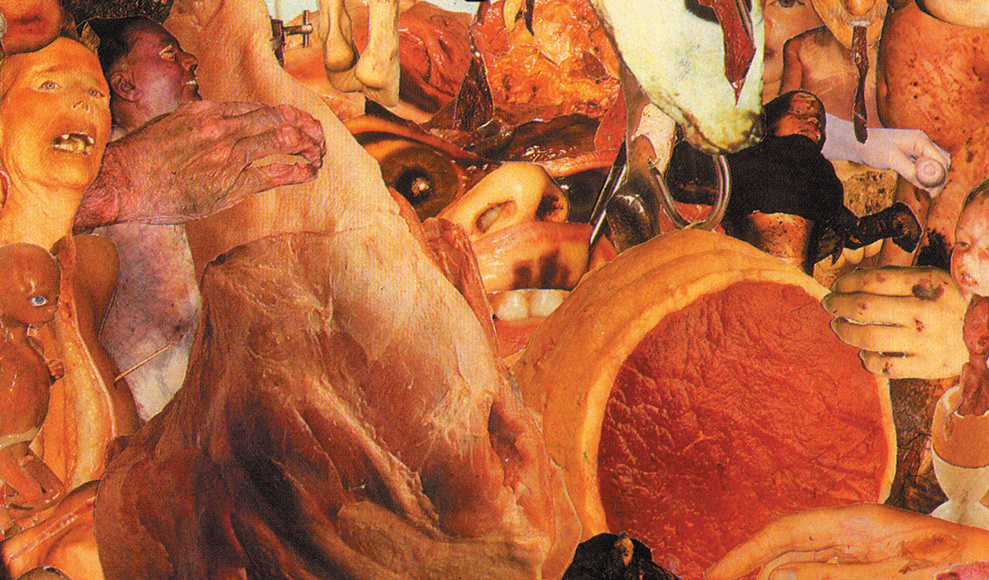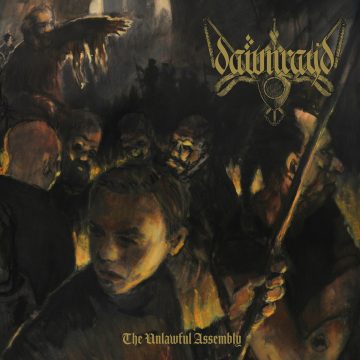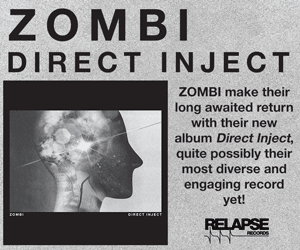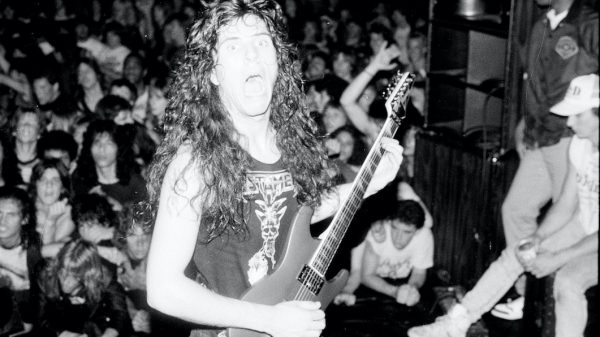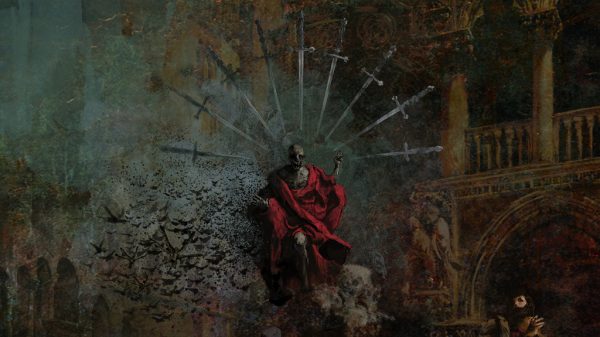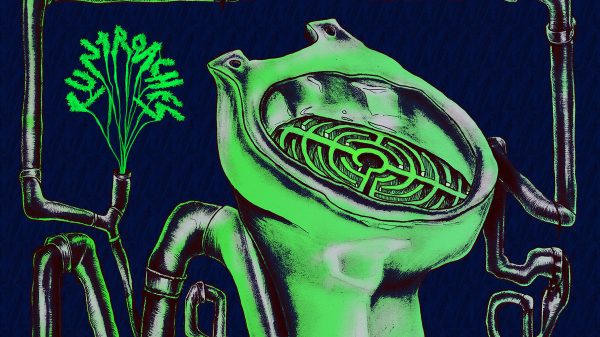2017 came to a close with Dawn Ray’d’s The Unlawful Assembly ending up on a truckload of year-end lists. The album certainly deserved all of the accolades it received (although I personally could have done without the awkward folk passages that bookended each side). It was a blistering atmospheric black metal rager that incorporated enough striking original elements to elevate it above the pack of Wolves in the Throne Room imitators that currently populate the atmospheric black metal landscape. One of those original elements that most music critics jumped on was the band’s overtly leftist political lyrics. Decidedly steeped in anarcho-syndicalism, Dawn Ray’d was indeed a breath of fresh air in a genre where most bands strive to be apolitical, regardless of their own orientations (which has led to no small consternation and gnashing of teeth among fans and critics who are left wondering some bands’ implicit intent, given the questionable politics that occasionally populates the genre).
Unfortunately, along with the accolades, a lot of writers chose to not so subtly slight other metal bands in their praise of The Unlawful Assembly. A typical example is found in the Guardian’s year-end round up:
While some black metal bands merely faff about with the devil, flesh tunnels and difficult to read calligraphy, Dawn Ray’d take aim at capitalism and the rotten people who exploit it.
Cool, but do we really need to denigrate the bread and butter of heavy metal to elevate one of its rising stars? I’ve seen similar sentiments reflected elsewhere from the genre’s leading writers to lowly message board commentators. Inherent in this is that heavy metal is somehow not serious and that for all its Satanic Sturm und Drang, it’s really just an elaborate tongue-in-cheek joke. Indeed, Stereogum’s Doug Jones wrote in his preamble to that site’s 2017 metal roundup that metal seems to suffer from an inferiority complex, wherein fans will often nod in agreement that metal is essentially dumb when faced with criticism from outsiders. Compounding this self-loathing is the never-ending stream of insults and dismissals from the mainstream.
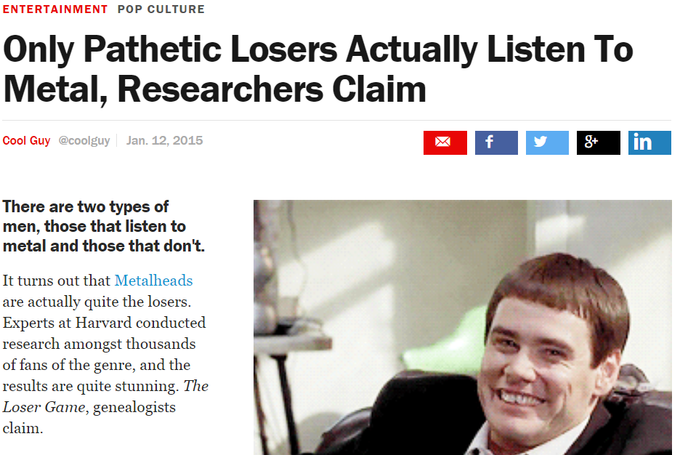
It seems that at least a couple of times a year, some mainstream music site gathers up a litany of sins committed by metal musicians in order to lambast the culture as juvenile, sexist, criminal or bigoted. Usually such articles are riddled with misunderstandings and factual errors that could easily be cleared up with the slightest amount of research (I’ll never tire of the Slayer as Nazi band trope), but factual accuracy doesn’t seem to be the aim of such hit pieces:
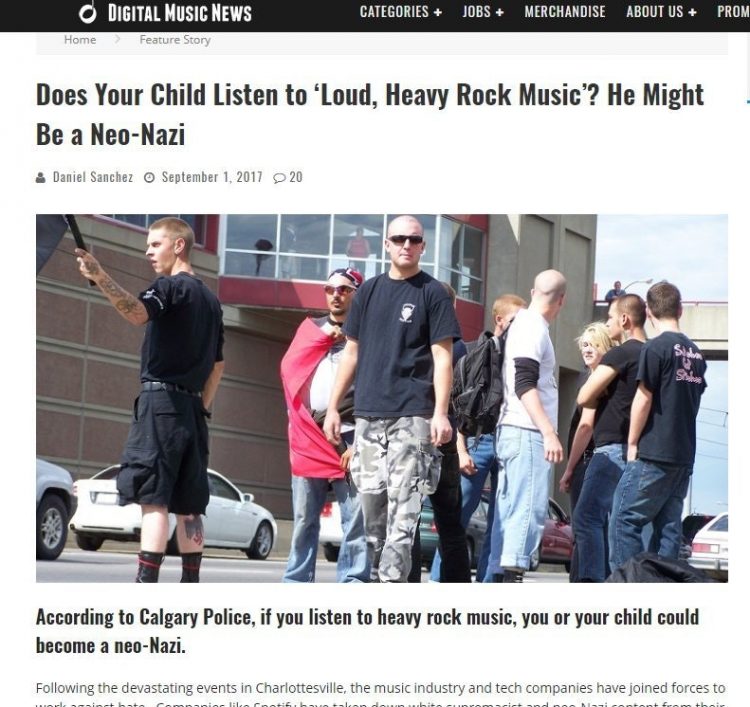
Instead, metal think pieces generated by outsiders are fuelled by the assumption that metal is the realm of basement dwellers who can’t function in society. That it represents the back alleys and gutters of popular music’s shining city on the hill, where the only anthems worth listening to are an endless variation of the pseudo-intellectual musings of the likes of David Byrne and his progeny, or the real real heartfelt emotions of modern icons like Drake. For these cultural gatekeepers a song like the Talking Head’s “Once in a Lifetime” seems to be the Platonic Form of cultural expression. Its tale of existential happenstance almost makes you think something profound is being said before the beat kicks in and you can dance your creeping angst away. Because what is life other than a series of songs to soundtrack it in the most superficial and disposable way possible, like the latest iteration of a smartphone that never really changes that much, but is updated just enough to make you feel like you are in the NOW, forever staving off the creep of decay and death’s inevitability?
But not metal. Metal is not false.
And that’s the joke, right? That metal is “TRVE” and not false, but it really isn’t a joke. The joke is that “Once in a Lifetime” actually has something profound to say. It doesn’t, it just sounds like it does, because it sort of scratches the existential surface of the abyss that metal dives straight into, going all the way down into the infinite chasm of darkness underneath it all.

I realize I am dating myself with the Talking Heads reference, but I’d argue that nearly every iteration of critically adored music since is some variation on the form of Byrne’s wistfulness (and that song is still being used regularly in popular culture, which is probably why it is at the forefront of my mind). I should also point out that I actually very much like the Talking Heads, and Pavement, and LCD Soundsystem, and I’ll break your face if you ever say a bad word about Belle & Sebastian, because I am not immune to wistfulness – but I also recognize it as a diversion from the cold hard truths of Fate. There is a reason the term “whistling past the graveyard” denotes falsely uplifting music.
But not metal. Metal stares Fate down, acknowledges it, embraces it and sometimes fights it. It never ever denies it or gives way to personal romantic nostalgia.
And what does metal get in return for its unflinching nature? Ridicule.
Arguably such ridicule says more about humankind’s delusional capacity to deny death’s inevitability and the violence of existence, than it does about any fault with metal. For purposes of this article though, let me entertain some of the common criticisms about the genre. To begin with, let’s start with the one I’ve seen plenty of metalheads bitch about as well – and that is the genre’s undying devotion to its patron saint Lucifer.
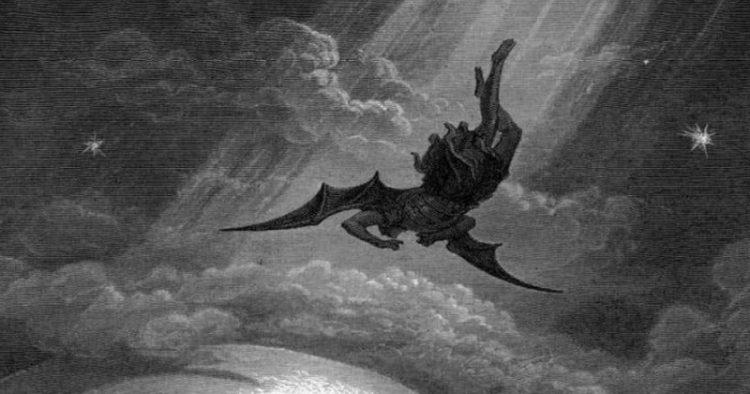
First of all, if you have a problem with Satanism or lyrics about the Devil, metal probably isn’t for you. Sure, there are some Christian oriented bands, hell even a few highly respected ones like Trouble and Candlemass, and the occasional Sabbath lyric bends toward the cross, but c’mon, you don’t go to church and request the choir sing “Ave Satanas,” do you? So stop whining about hymns to the Devil in the Devil’s house. Admittedly, the over-reliance on Old Nick can be a bit much for even the most devoted fan, and yes there is more to life (unfortunately) than black masses. At the same time Satanic themes (and here I would include the occult in general) are far more complex than the cartoon cut-out versions that exists in the minds of outsiders and some fans alike.

While not wanting to turn this into a diatribe on Satanism (I’ve already written more than a few of those) both the atheistic and theistic strains of Satanism that some of heavy metal’s finest subscribe to is a far richer and deeper philosophy than outsiders understand. Satanism is rife with themes of rebellion, liberation, antinomianism, overcoming, will to power and embracing one’s own demons in a quest for individual wholeness. To pretend that it’s just a juvenile phase the goth kids who shop at Hot Topic go through is to misunderstand it entirely.
Satanism strips away the veneer of society, and returns the self to its primal nature for the purposes of discovering one’s true self, or Will. While Western philosophy has gotten further and further away from the Greek maxim to “know thyself,” Satanism brings us back to this existential quest, believing that in order to truly know oneself one must understand and embrace the light and dark aspects of one’s nature in a quest to achieve individuated wholeness. If that isn’t your understanding of Satanism, then maybe you really shouldn’t be complaining about the likes of Nergal, Gaahl, Erik Danielsson, and most definitely not Deathspell Omega, for singing hosannas to the denizens of Hell. I should also note that I personally would argue that Satanism itself ultimately leads to the sort of antifascist anarchism that Dawn Ray’d preach. After all, what could be more left-hand path than “No Gods, No Masters”?
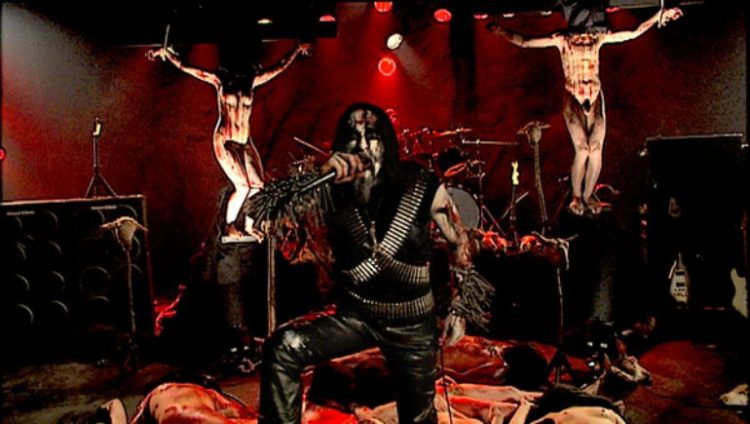
This isn’t to say that the cartoon Devil isn’t invoked in metal as well, but even then it is hard to completely write off the rebellion and liberation inherent in such invocations. Even the most over the top (and accessible) metal acts, like Ghost, are not so slyly advancing a serious Luciferian message. This message is just as spiritually and philosophically deep as Buddhism, Hinduism, Gnosticism, Jewish mysticism and continental existentialism. As with those disciplines, there is no dancing away the creeping angst in Satanism. Instead, Satanism demands the adherent to fully examine and explore that angst.

Moving away from metal’s oft-maligned spiritual center, let’s take a gander at war and gore, another off-putting lyrical theme that permeates the genre. War metal, or rather metal about war, since war metal is actually something else entirely (goats, so many goats), taps into something we do everything in our power to ignore, which is that nature is far more of a Hobbesian struggle than we would like to admit. The advent of democratic societies, as well as advances in sciences and technologies, gives us a false sense of comfort, allowing us to forget that nature is red in both tooth and claw. Without these improvements life would indeed be “nasty, brutish and short.”
If 2017 has shown us anything, it is that these advances cannot be taken for granted and that our societal buffers are far more fragile than we imagine. Even with progress, war is hardly an extinct animal. In fact, the United States is currently in the midst of the longest continuous state of war in its history. Not that you would ever know that from listening to popular or indie music – but metal hasn’t forgotten.
For my money, one of the most harrowing songs of the new millennia has been Slayer’s “Flesh Storm.” A grossly under-appreciated track born out of the horror of our wars abroad, I sometimes have to skip it when it comes up on my iPod, because it is far too real and occasionally even I need to turn away.
Then there is the gore, bloody gore that defines death metal. Ugh. Honestly, it took me forever to embrace this aspect of the genre, and not because of its cartoonish litany of dismembered and dissected organs, but because I didn’t want to think about the fact that I too am just a sentient bag of decaying flesh, blood, bone and tissue.
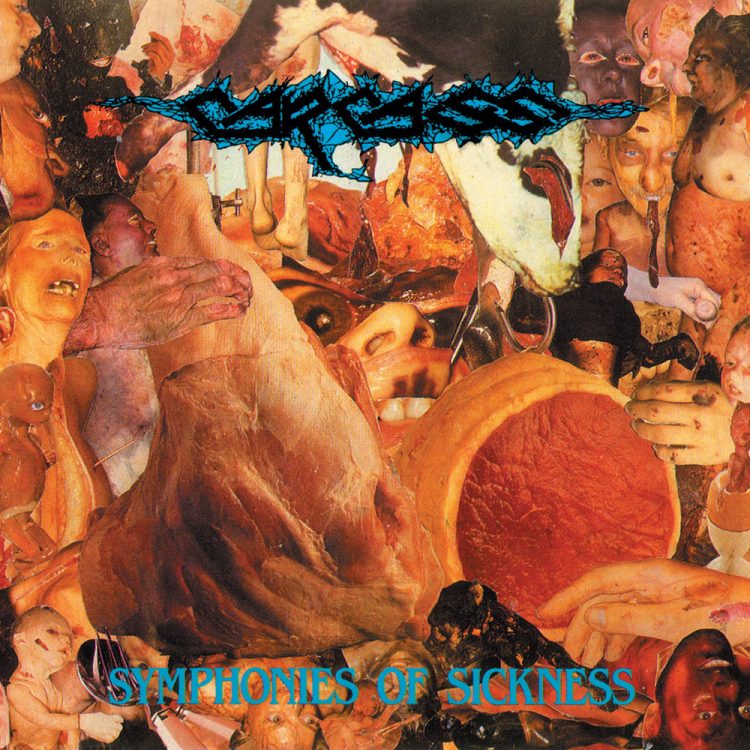
Death metal, through its gross-out lyrics, knocks humanity down to its pure biological state, forcing us to recognize we are no more or less than the animals we eat, which in turn becomes the waste we excrete. How is that for realism? The very best death metal goes on to examine systemic oppressions that ultimate result from such a strict materialist worldview.
Of course all of these themes (as well as the other various subjects prevalent in the genre) ultimately are just mile markers on the way to the granddaddy of them all: doom, as in the death of you and me and everyone we know. If you’re like me, you’ve been obsessed with death since you were a child and realized that everything is born to die. Hell, I’m so obsessed with my own extinction (as well as yours, dear reader) that at one time I based an entire course of master’s work in philosophy around it, centering on Nietzsche, Kierkegaard and “The Gift of Death” by Jacques Derrida. Ironically, as I was writing my thesis about the moral imperative inherent in death (or, to put it in layman’s terms, how to live a life worthy of a good death) my first child was born and I abandoned my writing entirely to raise her as a soon to be single father. I’ve always felt there was something poetic about this turn of events – that new life snatched me away from completing my thesis on death – but I digress, as this is a mere diversion, as is the diversion of new life itself, because no matter how much new life we create, death awaits it, and us, all. Metal emanates from this brutal truth.
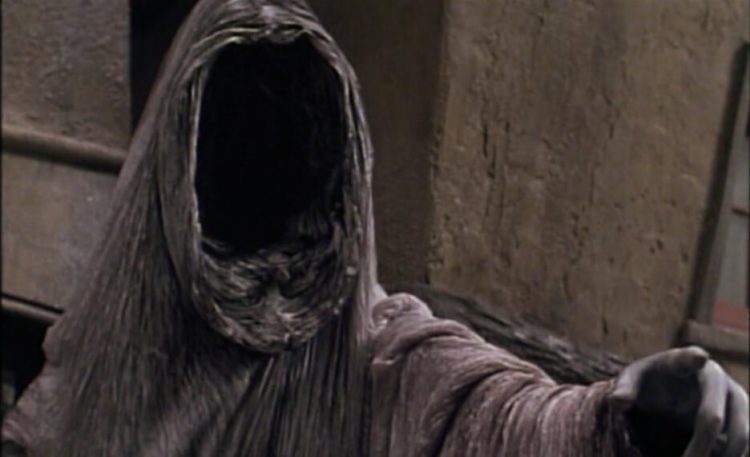
Furthermore, given the decimation of our environment, our collective future appears to be death writ large for the entire planet and all those who inhabit it. Rather than confront this reality, popular music does everything it can to sidestep it with a myriad of shallow distractions so insubstantial that like any other high, it can only be sustained through an endless cycle of consumption. Luckily for pop music, we have become a society of consumers whose alpha and omega is that which is consumed. How many allegedly serious people, particularly cultural gatekeepers in the media, have written extensively about the evolution, or devolution, of Taylor Swift, as if she were an avatar of the gods?

Is it any wonder that metal responds with gaping anti-cosmic hatred toward our species?
To quote Cattle Decapitation’s masterful “The Prophets of Loss”:
Certain doom – assured destruction of finite ecosystems. You may not know it now, but your children are fucked and their children’s futures are ruined, they’ll take part in the ultimate do in of earth, resources, the grand undoing.
Sustainability unobtainable.
Heed this warning now, as you carry the cross
From the clergy of doom, the prophets of lossWe fucking die tonight and that’s perfectly alright with me
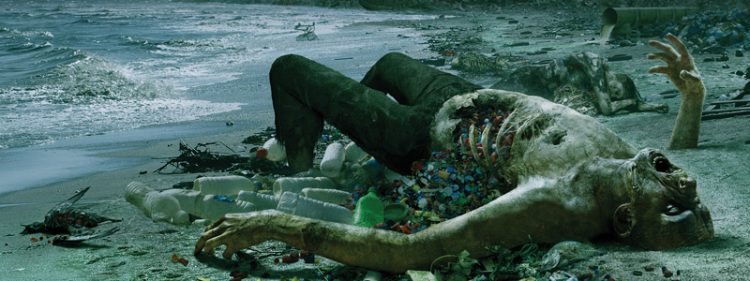
Such lyrics and the rage behind them are the farthest thing from the comic book cartoon that the Swifties and cultural gatekeepers of the world accuse metal of being. Rather, these sentiments are far more real than the vast majority of us want to acknowledge, and that is why metal is shunned, ignored and mocked. In its capacity as our modern Pythia, metal is the enemy of shallow consumerism and denial. It is at times anti-fun, but in being so it is far more serious an art form than it is ever given proper credit for.
None of this is to say that there isn’t crap metal with crap lyrics; there is – a ton of it. There is also crap pop, hip hop and indie – a ton of it as well, but you don’t see think-pieces dedicated to how horrible those genres and the people who listen to them are because of it.
As the world heads into another year of chaos, bloodshed, injustice, inequality and ever looming environmental collapse, we can expect the cultural gatekeepers to continue whistling past the graveyard while obsessing over whatever new iteration of easily consumable sugar rushes and moments of wistful nostalgia they deem important. In the meantime, metal will continue keeping track of what time it really is, not once seeking the approval of others, while speaking its truth no matter how uncomfortable it is. The least we could do is stop apologizing for it and raise our horns high and with pride.


